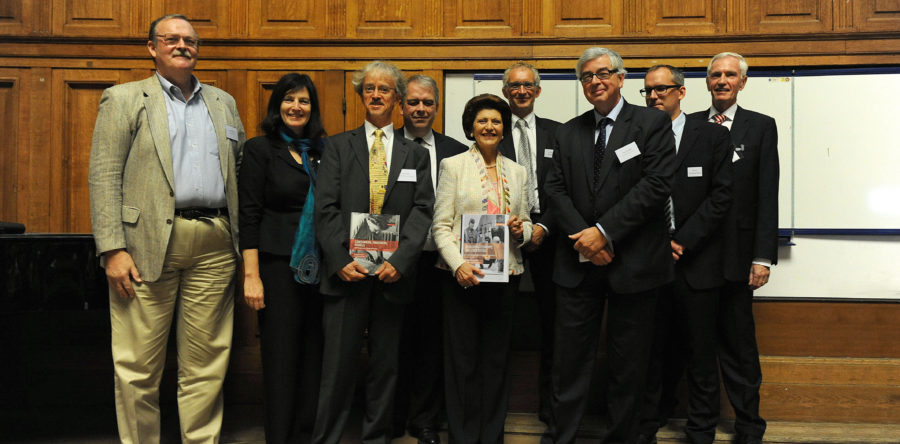Johan Schot was awarded an honorary degree by the New University of Lisbon (Universidade NOVA de Lisboa) for his work in the discipline, History of Technology. He is the first in the country to receive an ‘honoris causa’ within the field. The honorary degree was presented at a special ceremony on 21 March, and recognized Johan Schot’s influential, wide-ranging and significant research in the discipline. It also signified the maturity reached by the field within national and international research.
The impact of Schot’s work – at the interface of science and technology, and the humanities, using historical perspectives – is substantial. Schot has been key in the development of the History of Technology, in recognition, receiving the 2015 Leonardo da Vinci Medal and, in the previous year, winning too the distinguished Freeman Prize.
This new honour marks out further, Schot’s skill for extensive collaborative work in creating and fostering transnational research communities, in this instance, the network ‘Tensions of Europe’. In the beginning of this century, when Schot was working at Eindhoven University of Technology and the Foundation for the History or Technology, Schot was one of the founding fathers of Tensions of Europe. This research network subsequently inspired the six volume series – ‘Making Europe: Technology and Transformations, 1850-2000’ – which examines the continent through a fresh lens with new perspectives and narratives.
Initiated by the Foundation for the History of Technology and published by Palgrave, ‘Making Europe’ focuses on key dimensions of technological change. The accessible and well-illustrated volumes cover a broad scope of issues, giving sharp analysis and critical knowledge with fresh thinking. Johan Schot, along with his co-editor Phil Scranton, orchestrated 14 distinguished historians from across the continent to bring the series to life.
His own book, the third in the sequence – ‘Writing the Rules for Europe: Experts, Cartels & International Organisations’ – authored with Wolfram Kaiser, highlights the hidden integration within Europe. This topical volume demonstrates how by examining other routines, rules and practices an alternative view of Europe forms – counter to that of the EU and Northern nations’ narrative. This offers an important viewpoint for the current debate on Europe – its validity, meaning and future.
Find more information here.

